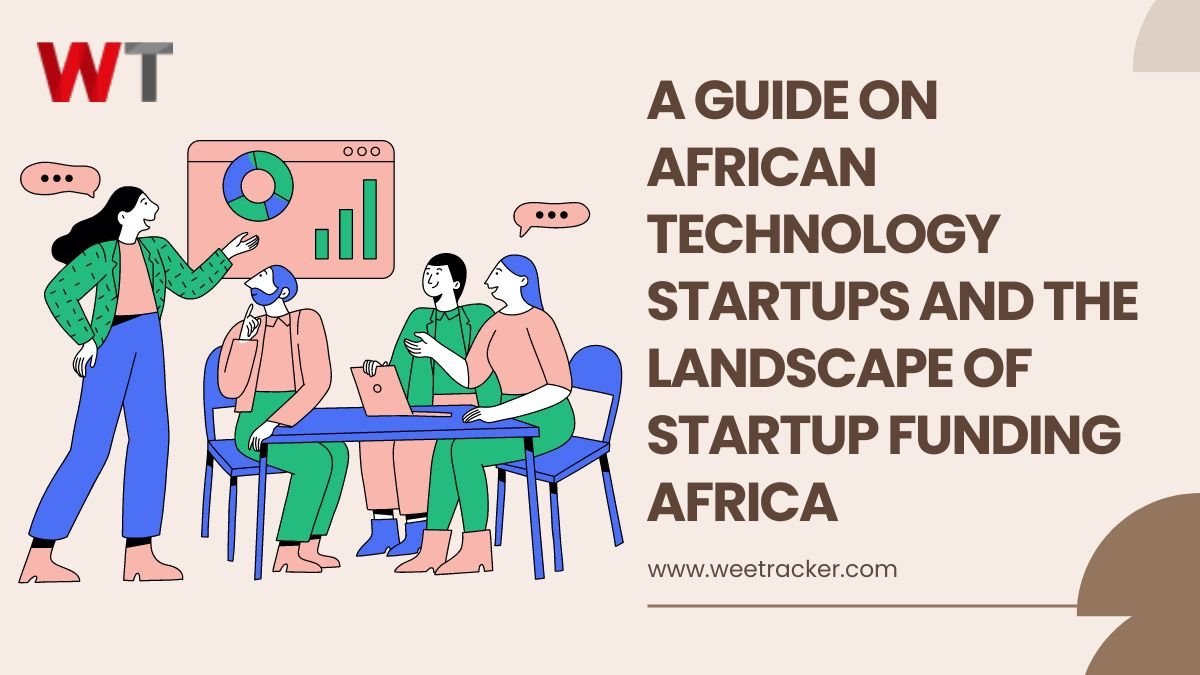A Guide on African Technology Startups and the Landscape of Startup Funding Africa

Africa is rapidly emerging as a hub for technological innovation, with a growing number of startups across the continent tackling local and global challenges with unique, tech-driven solutions. This vibrant ecosystem is fueled by a combination of entrepreneurial spirit, increasing internet penetration, and a supportive environment for innovation. In this blog, we will explore the dynamic world of African technology startups and delve into the various avenues for startup funding available across the continent.
The Rise of African Technology Startups
In recent years, African technology startups have been gaining global recognition for their ingenuity and impact. Entrepreneurs across the continent are leveraging technology to address pressing issues in sectors such as healthcare, agriculture, education, fintech, and e-commerce.
Key Drivers of Startup Growth in Africa
Growing Digital Infrastructure: The expansion of digital infrastructure, including internet connectivity and mobile technology, has created fertile ground for tech startups. With over 500 million internet users, Africa’s digital economy is booming.
Youthful Demographics: Africa has the world’s youngest population, with a median age of around 19. This young, tech-savvy demographic is driving demand for digital solutions and contributing to a culture of innovation and entrepreneurship.
Urbanization: Rapid urbanization is creating new challenges and opportunities in African cities. Startups are developing smart city solutions, from transportation and logistics to energy management and public services.
Global Interest and Investment: International investors are increasingly recognizing the potential of African startups. Venture capital firms, corporate investors, and development finance institutions are channeling funds into the continent’s tech ecosystem.
Prominent African Technology Startups
Andela: Andela is a company that trains software developers in Africa and connects them with global tech companies. With operations in Nigeria, Kenya, Uganda, and Rwanda, Andela is building a network of skilled tech professionals.
Flutterwave: Based in Nigeria, Flutterwave provides payment infrastructure for businesses to receive payments across Africa. It simplifies payment processing and supports various payment methods, making it easier for businesses to operate across borders.
Twiga Foods: Twiga Foods is an agritech startup from Kenya that connects farmers with retailers through a digital platform. By streamlining the supply chain, Twiga Foods helps reduce food waste and improve efficiency in the agricultural sector.
Jumia: Often referred to as the “Amazon of Africa,” Jumia is an e-commerce platform that operates in multiple African countries. It offers a wide range of products and services, from electronics to fashion to food delivery.
The Ecosystem Supporting African Startups
A robust ecosystem is essential for the growth and sustainability of startups. In Africa, this ecosystem is composed of various elements, including incubators, accelerators, co-working spaces, and supportive government policies.
Incubators and Accelerators
iHub: Located in Nairobi, Kenya, iHub is a pioneering tech hub that provides startups with workspace, mentorship, and access to funding. It has been instrumental in nurturing the growth of many successful African startups.
MEST Africa: MEST (Meltwater Entrepreneurial School of Technology) is a pan-African incubator, training program, and seed fund based in Ghana. It supports entrepreneurs in launching and scaling their tech businesses.
CcHub: Based in Lagos, Nigeria, CcHub (Co-Creation Hub) is a leading innovation center that offers incubation, acceleration, and funding opportunities to startups. It also fosters collaboration among tech communities.
Government Initiatives
Konza Technopolis: The Kenyan government is developing Konza Technopolis, a smart city and innovation hub designed to attract tech companies and foster innovation. This initiative aims to position Kenya as a global technology destination.
Startup Act: Tunisia has implemented a Startup Act that provides various incentives to startups, including tax breaks, funding opportunities, and simplified regulatory processes. This policy is designed to boost the country’s tech ecosystem.
Nigeria Startup Bill: Nigeria is in the process of implementing a Startup Bill aimed at creating an enabling environment for tech startups. The bill includes provisions for funding, mentorship, and regulatory support.
Avenues for Startup Funding in Africa
Access to funding is crucial for the growth and success of startups. African entrepreneurs have access to a diverse range of funding options, tailored to different stages of their business lifecycle.
Seed Funding
Angel Investors: Angel investors are high-net-worth individuals who provide early-stage capital to startups. In Africa, networks such as the African Business Angel Network (ABAN) connect startups with potential angel investors.
Crowdfunding: Platforms like M-Changa and Fundly enable startups to raise small amounts of money from a large number of people. Crowdfunding is becoming an increasingly popular way for African startups to secure seed funding.
Venture Capital
Venture Capital Firms: As startups grow and scale, they often seek larger investments from venture capital (VC) firms. Firms such as Partech Africa, TLcom Capital, and Novastar Ventures are active players in the African VC landscape.
Corporate Venture Funds: Large corporations are establishing venture funds to invest in promising startups. For example, Safaricom’s Spark Venture Fund supports innovative startups in the Kenyan tech ecosystem.
Impact Investment
Impact Investors: Impact investors focus on startups that generate both financial returns and positive social or environmental impact. Funds like Acumen and the Omidyar Network invest in African startups addressing critical issues in sectors such as healthcare, education, and sustainability.
Grants and Competitions
Development Finance Institutions: Organizations such as the African Development Bank and the World Bank offer grants and funding opportunities to startups working on innovative solutions to development challenges.
Innovation Challenges: Competitions and challenges, such as the Hult Prize and the Anzisha Prize, provide startups with funding, mentorship, and exposure. These platforms encourage young entrepreneurs to develop innovative solutions to pressing problems.
Conclusion
African technology startups are at the forefront of a continent-wide transformation, leveraging innovation to tackle local and global challenges. With a supportive ecosystem and diverse funding options, these startups are poised for growth and success. The surge in venture capital and investment in African tech is a testament to the continent’s potential as a global technology hub.
As Africa continues to embrace technology and innovation, the role of startup funding Africa will be crucial in driving economic growth, creating jobs, and addressing societal challenges. By fostering a vibrant startup ecosystem and ensuring access to funding, Africa can unlock its full potential and pave the way for a brighter future. The world is watching, and the future of African technology startups looks incredibly promising.




